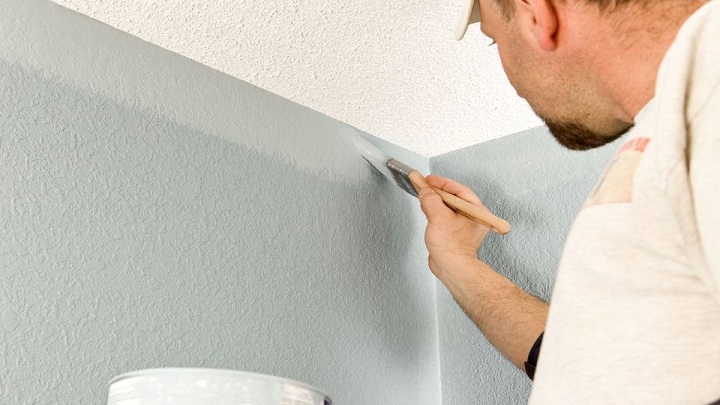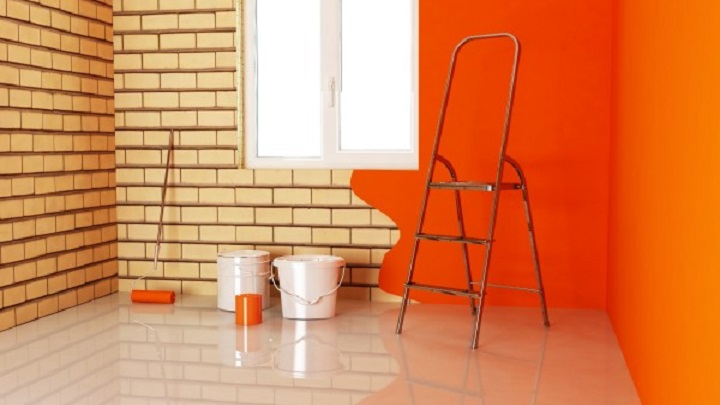Painting the inside of your home requires patience. These tips will allow you to paint your walls perfectly as a real professional.
The right tools
Painting is a very popular task to do yourself, and many amateurs succeed in it. However, to prepare you, you must have the right tools. Items to be handy include:

Wall cleaning materials
Begin with soft towels, natural sponges (otherwise, dyes can stain the walls), a bucket, at least four liters of hot water and a generous spoonful of dishwashing liquid.
- If your walls are dirtier than average, add one cup of white vinegar, one baking soda, and one non-foaming ammonia.
- Rinse the walls using a second bucket of clean water.
- Wait at least a day to let the walls dry.

Masking tape for door frames, windows, and woodwork
Straight and clean edges will give the impression that the work will have been done by a professional painter.
You may also like to read: 6 Things to Do Before Painting
Primary layer to be applied before the main color
Without a primer, you can paint the wrong shades and make them unable to hold as well as they should.
- Better yet, add some of your main colors to the primer to reduce visible traces of it.

Retouching product
You must take the time to properly prepare your walls. This part of the painting can be less exciting, but take care to fill, scratch and correct the sandpaper with imperfections.
- Wait a few days to make sure everything is dry before continuing.
Painting, lots of paint
Many people underestimate the amount of paint required. Plan to use about two cups of paint for 400 square feet.

General advice
- Move your furniture and other bricks and pitcher, or cover them with at least a rag or tarps. Use paint sheets to protect your floors, photos and door handles. The web rather than the plastic is safer, it lasts longer and leads to fewer splashes.
- Remove the protective covers for electrical outlets and other wall plates.
Furniture
Walls are not the only thing you can paint in a house. Giving a makeover to your furniture is a great way to give a glow to your home.
- Use a mild cleansing solution (such as hot water and soap) to clean furniture before painting. For more challenging tasks, you may need disodium phosphate.
- Treat the furniture surfaces with sandpaper to help the new paint adhere.
- A bristle brush for the first coat of paint allows it to hold better, while it is better to apply the final coat with a foam brush or roller.
- Depending on what you want to do with your furniture, you may also need a layer of wax or polyurethane.
The trick for a perfect painting is to give each step the attention it deserves and to have the right tools. The cleaning and the primary coat are not funny, but they allow having an elegant paint worthy of a professional.




Average Rating